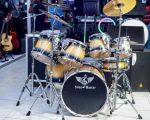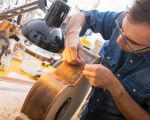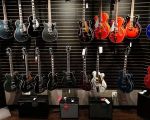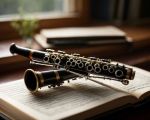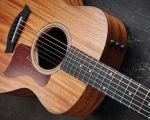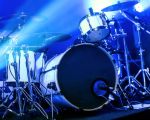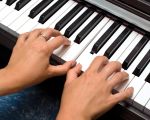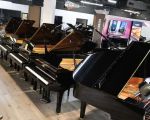Best Instruments for a Home Recording Studio – Essential Gear for Musicians
As a musician and music producer, building my own home recording studio has been one of the most exciting and rewarding experiences. Over the years, I’ve learned that having the right instruments and gear is crucial to achieving professional-quality recordings. Whether you’re just starting out or upgrading your current setup, understanding the best instruments for a home recording studio is essential. From versatile keyboards to high-quality microphones, each piece of equipment plays a significant role in bringing your musical ideas to life.
1. The Importance of a Quality Digital Audio Workstation (DAW)
Before diving into the instruments themselves, one of the first things I realized when setting up my home recording studio was the importance of a good Digital Audio Workstation (DAW). This software is the heart of your studio, where you’ll record, edit, and mix all of your tracks. Choosing the right DAW depends on your style of music and the kind of workflow you prefer. Some of the top DAWs used by professionals include Pro Tools, Logic Pro, Ableton Live, and Cubase.
When I first started, I chose Logic Pro X because it offers a wide range of virtual instruments and powerful editing capabilities, which were essential for my production needs. The DAW you choose will impact the way you record and create music, so it's crucial to invest in one that suits your workflow. A reliable DAW combined with good instruments will set the foundation for creating great music in your home studio.
2. Keyboards and MIDI Controllers: The Foundation for Your Music
One of the most important instruments for any home recording studio is a good keyboard or MIDI controller. As someone who loves to experiment with melodies and beats, having a versatile keyboard is key to unlocking my creativity. A MIDI controller doesn’t produce sound on its own but connects to your DAW to trigger virtual instruments. It’s the perfect tool for producing realistic piano lines, orchestral arrangements, and electronic sounds all from one device.
There are plenty of MIDI controllers available, ranging from compact 25-key versions to full-sized 88-key models. I personally love the Akai MPK Mini MKIII for its portability and intuitive layout. It includes pads for triggering drums, knobs for tweaking sounds, and a sleek design that fits perfectly into my home studio. If you prefer something with more keys, the Yamaha P-125 is a great option, offering a full piano feel with excellent sound quality for both beginners and seasoned musicians.
The addition of a MIDI keyboard to your setup allows you to experiment with different musical ideas, record complex compositions, and integrate virtual instruments with ease. With the right keyboard or MIDI controller, you’ll be able to create everything from simple loops to full arrangements.
3. Quality Microphones: Capturing Your Sound
Microphones are a fundamental part of any home recording studio, and selecting the right one can make a significant difference in the overall quality of your recordings. For vocals, acoustic instruments, or even room ambiance, having a high-quality microphone is a must. I’ve gone through several microphones over the years, and each one offers different benefits based on what I’m recording.
If you’re just starting out, a solid condenser microphone is perfect for capturing detailed and accurate sounds. My personal favorite is the Audio-Technica AT2020, a budget-friendly option that offers exceptional sound clarity for vocals and instruments. It's perfect for recording at home, especially for those who want professional results without spending a fortune.
For those who need versatility, a Shure SM7B dynamic microphone is a great choice. This mic works well for a wide range of recordings, from vocals to guitar amplifiers, and is a staple in many home studios. It’s built to handle loud sounds and reduce unwanted noise, making it ideal for recording in less-than-perfect acoustic environments, like a home studio.
Finally, for those who want a more authentic and immersive sound, ribbon microphones like the Aston Spirit offer a unique warmth and richness, often preferred for certain types of vocal performances and vintage-style recordings.
4. Electric Guitars and Bass Guitars: Essential for All Genres
As a guitarist, having a high-quality electric guitar is a key component of my home recording studio setup. The beauty of an electric guitar is its versatility; it can be used for everything from light strumming to high-energy shredding, fitting perfectly into any genre from rock and pop to jazz and blues.
One of my favorite electric guitars is the Fender American Professional II Stratocaster. It has a bright, clear tone that works perfectly for recording clean, crisp guitar parts. The wide variety of tones you can achieve with just a few knob adjustments makes it ideal for experimenting with different musical ideas. Whether I’m playing solo sections or layering multiple guitar tracks, this guitar delivers every time.
If you're more into bass-heavy sounds, a quality bass guitar is equally essential. For bass, I recommend the Fender Player Series Jazz Bass, known for its smooth tone and comfortability. Whether you’re recording for a rock band or an electronic track, having a reliable bass guitar allows you to lay down the foundation of your track with solid, rhythmic basslines.
5. Drum Kits and Electronic Drum Pads: Laying the Rhythm
Drums are the backbone of most genres, and having the right drum kit is crucial for laying down solid rhythms in your recordings. While traditional drum kits are great for live performances, many home studios rely on electronic drum pads and drum machines to record beats. The advantage of using electronic drums is that they allow for precise control over the sound, volume, and effects of each hit.
The Roland TD-1K electronic drum kit is an excellent option for home studios due to its compact design and wide range of sounds. I’ve used it for everything from acoustic drum sounds to more electronic, synthetic beats, and it works wonderfully for any genre. If you’re looking for something more focused on beat-making, the Akai MPD218 is a great electronic drum pad that provides responsive pads for creating rhythms and triggering sounds in your DAW.
Drum machines like the Elektron Analog Rytm can also be an invaluable addition to your studio. With its deep sound design capabilities, it lets you craft complex beats and textures that will elevate your recordings, especially in electronic and hip-hop music.
6. Audio Interfaces: Connecting Everything Together
One of the final pieces to your home recording studio puzzle is the audio interface. This device connects your instruments and microphones to your computer, allowing you to record with high-quality sound. An audio interface is crucial because it provides the necessary preamps, converters, and connections to make everything work seamlessly in your DAW.
For a reliable and high-quality option, I recommend the Focusrite Scarlett 2i2 audio interface. It’s affordable, easy to use, and provides excellent sound quality with its clear preamps. Whether you're recording vocals, guitar, or any other instrument, the Scarlett 2i2 ensures that your sound is captured accurately. If you're looking for something with more inputs for larger setups, the PreSonus AudioBox USB 96 is another excellent choice.
Creating Your Dream Home Studio
Building a home recording studio can be a deeply rewarding experience. With the right instruments, you can bring your musical ideas to life and produce professional-quality recordings without ever leaving your home. Whether you're focused on guitar, vocals, or electronic music, having the right gear – from MIDI controllers to high-quality microphones – is essential to getting the best results. Over time, you’ll learn how each piece of equipment works together, creating a setup that is uniquely yours.
As you start building your studio, remember that investing in quality gear will pay off in the long run. If you're ready to take your music production to the next level, don’t hesitate to explore the world of recording studio gear and find the perfect instruments for your needs. For more information and recommendations on the best gear for your home studio, check out [Beat Trigger] for expert advice and the latest equipment.

